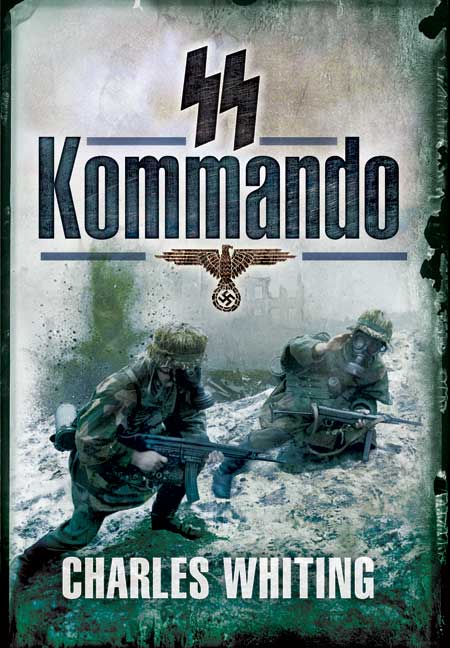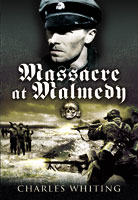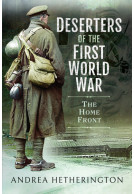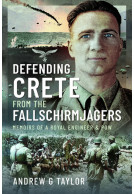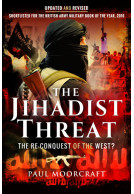SS Kommando (Paperback)
Imprint: Pen & Sword Military
Pages: 176
ISBN: 9781848842755
Published: 5th August 2010
(click here for international delivery rates)
Order within the next 1 hour, 13 minutes to get your order processed the next working day!
Need a currency converter? Check XE.com for live rates
The vast number of written accounts studying the British Special Forces in the Second World War overlook the fact that the Germans were actually the first to utilize this unconventional style of warfare. Indeed, two days before the official declaration of war German commando units disguised as Poles had already seized key positions along the frontier, and for three years after this Admiral Canaris’ Brandenburgers, formed long before the British Commandos or American Rangers were dreamed of, played a key role in Hitler’s military operations. Their operations ranged from capturing the bridges across the River Meuse in 1940 to supporting the IRA and Welsh Nationalists to stir up trouble within Britain. Charles Whiting, who interviewed many of the survivors, gives a vivid account of these men and their war.
Charles Whiting wrote his first novel in 1953, aged just twenty-six. He went on to be the world’s most prolific author of military books; he has sold in excess of three million in the UK alone, and his collective works number around 200. Charles also lived abroad for thirty years working in German chemical factories, US fashion companies, newspapers, magazines, universities – as an associate professor and lecturer – and spent a long spell in the US army. He died in 2007.
The vast number of written accounts studying the British Special Forces in WWII overlook the fact that the Germans were actually the first to utilize this unconventional style of warfare. Their operations ranged from capturing the bridges across the River Meuse in 1940 to supporting the IRA and Welsh Nationalists to stir up trouble within Britain.
reenacting ww2
Germany's special forces were intrinsically involved in the Second World War from before the outbreak of war in 1939 to the last days of conflict in 1945. Members of the Brandenburg force fired the first shots in Poland, two days early. Special Forces played a role in the victories in the west in 1940, rescued Mussolini after his fall from power and kept Hungary in the war on Germany's side.
History of War Website, November 2010
Whiting's book focuses on the exploits of the various German special units rather than their development or stricture. There is more on the background to the Abwehr's Brandenburg unit than on their SS equivalents but this isn't the main focus of the book.
Whiting's main strength lies in his use of first hand accounts provided by some of the surviving members of the units (including Skorzeny). Despite this reliance on the veterans Whiting a fair few failures, including the famous attempt to assassinate Stalin, Churchill and Roosevelt at Tehran and less well know failures in Egypt and Wales.
There is some confusion over the title of this book - the SS Kommando of the cover is less accurate that the title given inside the test - Kommand, Hitler's Special Forces in the Second World War. Canaris and his Brandenburgers dominate the first third of the book, the SS and especially Otto Skorzeny the rest.
This is an often atmospheric account of some less familiar aspects of the Second World War and a reminder that bold, daring special forces operations were not limited to the Allied side.
About Charles Whiting
Born in the Bootham area of York, England, he was a pupil at the prestigious Nunthorpe Grammar School, leaving at the age of 16 to join the British Army by lying about his age. Keen to be in on the wartime action, Whiting was attached to the 52nd Reconnaissance Regiment and by the age of 18 saw duty as a sergeant in France, Holland, Belgium and Germany in the latter stages of World War II. While still a soldier, he observed conflicts between the highest-ranking British and American generals which he would write about extensively in later years.
After the war, he stayed on in Germany completing his A-levels via correspondence course and teaching English before being enrolled at Leeds University reading History and German Language. As an undergraduate he was afforded opportunities for study at several European universities and, after gaining his degree, would go on to become an assistant professor of history. Elsewhere, Whiting held a variety of jobs which included working as a translator for a German chemical factory and spells as a publicist, a correspondent for The Times and feature writer for such diverse magazines as International Review of Linguistics, Soldier and Playboy.
His first novel was written while still an undergraduate, was published in 1954 and by 1958 had been followed by three wartime thrillers. Between 1960 and 2007 Charles went on to write over 350 titles, including 70 non-fiction titles covering varied topics from the Nazi intelligence service to British Regiments during World War II.
Charles Henry Whiting, author and military historian died on July 24 2007, leaving his wife and son.







